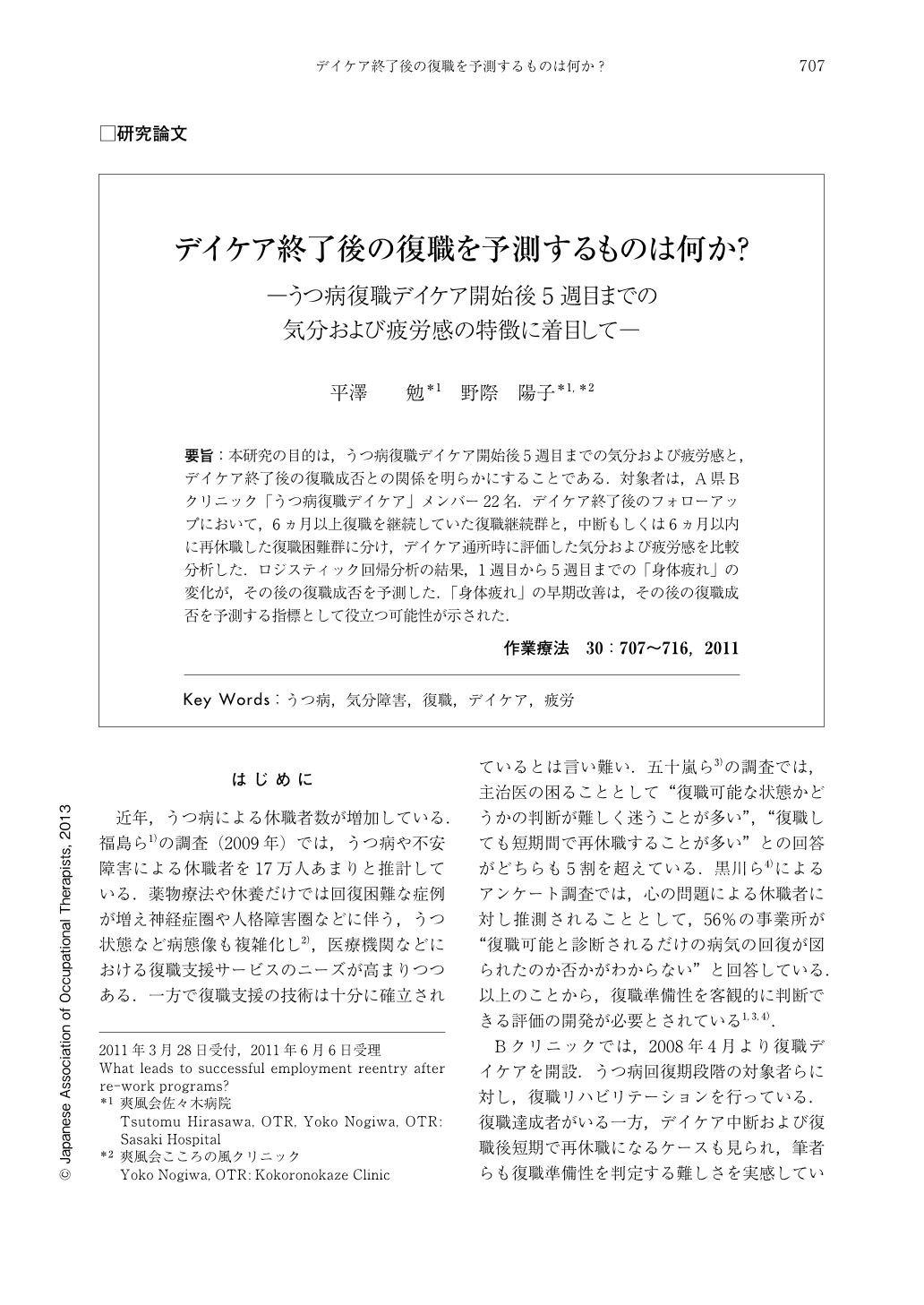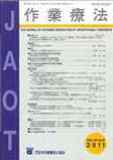Japanese
English
- 販売していません
- Abstract 文献概要
- 1ページ目 Look Inside
- 参考文献 Reference
- サイト内被引用 Cited by
要旨:本研究の目的は,うつ病復職デイケア開始後5週目までの気分および疲労感と,デイケア終了後の復職成否との関係を明らかにすることである.対象者は,A県Bクリニック「うつ病復職デイケア」メンバー22名.デイケア終了後のフォローアップにおいて,6ヵ月以上復職を継続していた復職継続群と,中断もしくは6ヵ月以内に再休職した復職困難群に分け,デイケア通所時に評価した気分および疲労感を比較分析した.ロジスティック回帰分析の結果,1週目から5週目までの「身体疲れ」の変化が,その後の復職成否を予測した.「身体疲れ」の早期改善は,その後の復職成否を予測する指標として役立つ可能性が示された.
The purpose of this study is to investigate the relationship between successful back-to-work programs and the profile of moods and feelings of fatigue at the early stage of a“re-work” program. The participants were 22 individuals suffering from depression who attended the “re-work” program provided at a local clinic. Based on their status at the follow-up, they were classified into a) a successful group consisting of 14 participants, who had worked more than 6 months, and b) an unsuccessful group consisting of 8 participants, who were unable to work more than 6 months after the program. The results of logistic regression analysis revealed that a change in physical fatigue significantly predicts the difference between groups. Reducing physical fatigue may be important to increase the likelihood for individuals with depression to return to work.

Copyright © 2011, Japanese Association of Occupational Therapists. All rights reserved.


